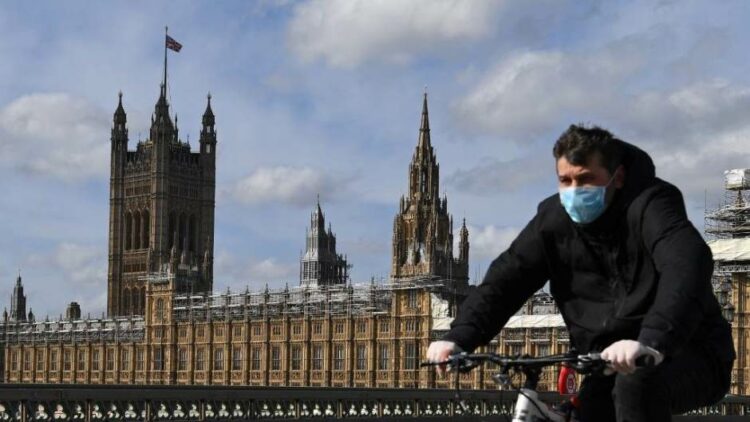
UK economic output shrank by 20.4% in the second quarter of 2020, the worst quarterly slump on record, pushing the country into the deepest recession of any major global economy.
This crash in GDP in the April-June period is the worst since quarterly records began in 1955 and follows a 2.2% contraction in the first quarter. Industries most exposed to government lockdown measures to contain the coronavirus pandemic — services, production and construction — saw record drops.
“Today's figures confirm that hard times are here,” UK finance minister Rishi Sunak said in a statement.
“Hundreds of thousands of people have already lost their jobs, and sadly in the coming months many more will. But while there are difficult choices to be made ahead, we will get through this, and I can assure people that nobody will be left without hope or opportunity.”
Compared with the end of 2019, UK economic output fell by a cumulative 22.1% in the first six months of 2020, a worse outcome than Germany, France and Italy, and double the 10.6% fall recorded in the United States, the Office for National Statistics said.
“The larger contraction primarily reflects how lockdown measures have been in place for a larger part of this period in the UK,” the ONS added.
Britain imposed a strict lockdown two weeks later than Italy, 10 days after Spain and a week after France, despite swelling coronavirus cases. That meant it took longer to get the spread of the virus under control, which prolonged the need for restrictions that kept many businesses closed.
For example, Italy allowed restaurants, cafes and hairdressers to reopen in the middle of May, whereas the United Kingdom waited until July 4 to do the same.
An easing of some lockdown restrictions in June, including the reopening of nonessential shops, delivered an immediate boost to the economy, with GDP increasing 8.7% on the previous month, according to the ONS.
The UK economy is heavily reliant on services and household spending, both of which posted record declines in the second quarter, as consumers who were holed up at home spent less money and saved more. In addition, millions of workers were furloughed and many have now been laid off.
The UK economy has shed 730,000 jobs since the coronavirus pandemic shuttered businesses in March, with the young, the old and the self-employed bearing the brunt of the unemployment crisis.
Kallum Pickering, a senior economist at Berenberg, said the GDP figures do not bode well for the rest of the year.
“Typically, recession data are subject to heavy revisions,” he said in a research note. “Nevertheless, taken at face value, the bigger-than-expected contraction suggests some downside risk to our call of a 9.5% contraction in full year 2020.”




